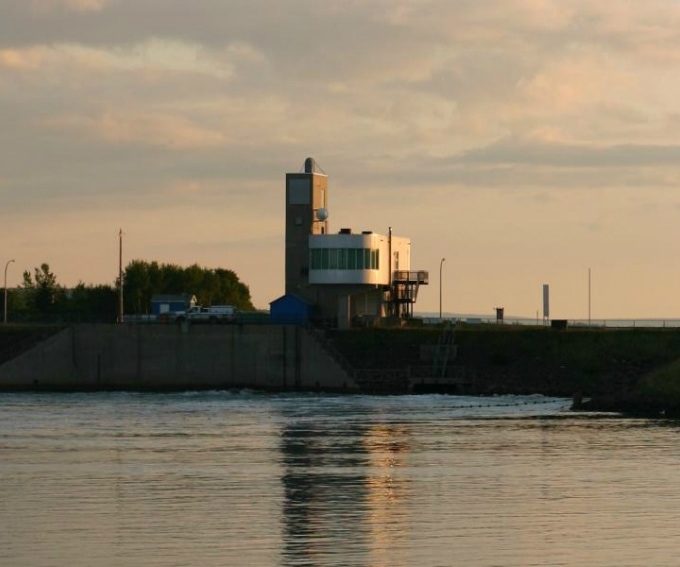In the fall of 2017 The Chronicle Herald published the first of a series of stories on how the Annapolis tidal generating station kills fish and is in violation of the Fisheries Act.

“Darren Porter, an area weir fisherman and spokesman for the Fundy United Federation, said ‘Fisheries and Oceans has known for a long time that the facility kills fish’.”
“Nova Scotia Power says it doesn’t need federal approval because the 20-megawatt turbine in the causeway that crosses the Annapolis River doesn’t kill any fish.”
“In a written statement to The Chronicle Herald on Thursday, Fisheries and Oceans stated that it ‘does not have any official reports of fish mortalities’ caused by the station.”
Subsequently, The Chronicle Herald published an article that disclosed that both Nova Scotia Power and Fisheries and Oceans Canada (DFO) in fact knew of fish mortalities. Fines for violating section 35 of the Fisheries Act range from $15,000 to $1 million for a first offence.
The good news is that out of this embarrassing circumstance something positive may develop.
The Canadian Science Advisory Secretariat (CSAS) is anticipated to undertake a regional peer review on the Annapolis tidal station this coming spring. This review is as high level as we can get from DFO, who will bring in scientists from external and internal sources as well as include traditional knowledge from the Mi’kmaq. The review will consolidate all existing studies and knowledge gathered to date on the effects of the Annapolis tidal plant.
The peer review can independently identify flaws, gaps, and the extent of serious ecological damage caused by the tidal generating plant. While this does not guarantee evidence-based decisions made by government, it does give the DFO Minster a way out of an embarrassing situation.
The minister and the Federal government can also save face with big industry players such as Emera, the parent company of Nova Scotia Power, as findings are the result of an independent review and clearly out of their hands.
The risk of a complete loss of trust is very real for DFO, which was confronted with reports of turbine fish kills and scathing op-eds such as this one by Ralph Surette.
It is anticipated that Nova Scotia Power will do a cost-benefit study on the Annapolis tidal station. The results of the CSAS report will assist the minister in identifying mitigation measures and their costs, and balance these against the benefit of generating what is in fact very little electricity.
For the past 34 years, the Annapolis tidal plant set the precedent as to how Nova Scotia Power and our provincial and federal governments have dealt with tidal power regulations in provincial and Canadian waters.
This is a chance to set a new precedent.
Nova Scotia Power says it intends to restart the turbine within days, although it still has no authorization and there are no new mitigation measures to prevent further serious harm to marine life and the ecosystem,
We will soon find out if Nova Scotia Power takes its environmental responsibilities as seriously as it likes to claim, or instead continues to think of its obligations as onerous processes.
Local residents of Annapolis, the fishermen, the Mi’kmaq and now even DFO have done their part. Now the ball is in the court of Nova Scotia Power.
Darren Porter is a fisher and environmental activist.
See also: CBC’s flawed reporting – It was NS Power that killed the fish
If you can, please support the Nova Scotia Advocate so that it can continue to cover issues such as poverty, racism, exclusion, workers’ rights and the environment in Nova Scotia. A pay wall is not an option since it would exclude many readers who don’t have any disposable income at all. We rely entirely on one-time donations and a tiny but mighty group of kindhearted monthly sustainers.




Please join:
https://www.facebook.com/groups/savethebayoffundy/
what about the 100 million $ loss to the soft shell clam industry? Since the early 1980’s Annapolis Tidal Power Dam, through erosional siltation, smothered out 75% of our productive clam beds in the Annapolis Basin and it is still on going . If that’s not FISH KILL then what is it?…The Clammer.
While DFO has imposed their ‘conservation and preservation’ restrictions on individuals trying earn a living, fining them forva few fish or every minor infraction, it has been open season all along for a profit driven corporation. Unknown volumes and species of fish and even whales have been impacted by industry, some to the detriment of species altogether, while our government has turned a blind eye. And today further bad news regarding oxygen levels and the risk to marine life.
No more. NS Power has reaped plenty more than they have sown in this province. No more. It is time for government to start protecting us and a sustainable environment for us, not a corporation’s bottom line.